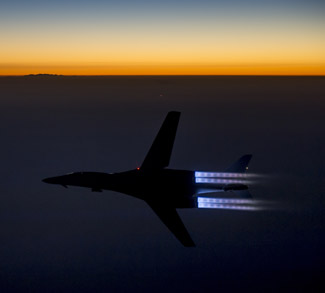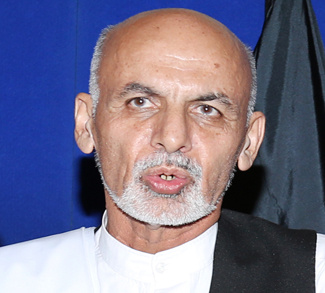Amidst the flurry of diplomatic activity over the past couple of weeks in Brussels and Munich, the first bilateral visit of US Secretary of Defense Pete Hegseth was not to London, Paris, or Berlin, but to Warsaw. In visiting Warsaw and speaking with his Polish counterpart, Hegseth proclaimed Poland to be Washington’s ‘model ally’ in Europe, a state that doesn’t just talk about its values and strategic agenda but one that actually delivers on its commitment to collective defense. In observing European defense and security developments on the third anniversary of Russia’s full-scale invasion of Ukraine, Hegseth’s statement is not surprising. However, it still speaks volumes as to the tectonic shifts happening across the continent. Three years later, Germany’s ‘Zeitenwende’ has failed to deliver, France remains hobbled by domestic political squabbles, and the special relationship between Washington and London is a relic of another era. The true driver of European strategic autonomy, capable of partnering effectively with Washington yet also of acting on its own, lies further east.
The present rupture in transatlantic relations under Trump is predictable, but the degree to which Europe has been unable to properly prepare itself for this moment is a consequence of its own complacency. President Trump is correct that the percent of GDP NATO allies spend on defense should be higher than the present 2%, and ideally closer to 4 to 5%, which only Poland, Lithuania, Latvia, and Estonia are currently reaching or expected to reach this year. These nations view the threat from Russia as existential and Ukraine’s victory as an essential component to maintaining European security.
For Poland, its leaders will likely argue forcibly for the continued presence of US troops on Polish soil and along the alliance’s eastern flank, particularly if a fragile peace settlement is reached in Ukraine or if US troops are removed from the Baltic nations. The transport hub at Rzeszow will remain a valuable asset for the alliance, as will the defense of the Suwałki Gap and Poland’s border with Belarus, frequently used by Belarusian leader Aleksandr Lukashenko as a means to test the alliance by weaponizing irregular migrant flows. Poland increasingly has the will and the capability to handle these challenges on its own, but it believes in the importance of US power as both a deterrent and a stabilizing force in Europe.
At the Munich Security Conference, Ukrainian President Zelenskyy called for an ‘armed forces of Europe’ in response to Russia’s full-scale invasion and messaging from Vice President Vance and others that the transatlantic security framework established after World War II has fundamentally ruptured. Among Washington’s historic European allies, a European defense force is largely unpopular and untenable, except amongst NATO’s Central and Eastern European member states like Poland, Czechia, and the Baltic nations. In Zelenskyy’s words, Europe should be prepared to act alone if necessary, and the United States should be eager to work with a strong and autonomous Europe. This is a statement long echoed by French President Macron in his calls for European strategic autonomy, but it is something only a few EU and NATO member states are presently delivering on.
From Washington’s perspective, Paris delivers grand pronouncements and proclamations of its strategic ambitions, while Warsaw actually delivers. Furthermore, Warsaw is more aligned with the Trump administration’s conception of traditional European values as a more socially conservative, nationalistic state with a Eurosceptic tradition, less susceptible to the excesses of liberalism and the effects of political correctness and identity politics. Hungary is arguably the Trump administration’s model ally in Europe when it comes to values-driven metrics, but Hungary is not a model member of the EU and NATO, as it has failed to support Ukraine, is on friendly terms with Putin, and favors a hard Euroscepticism that regularly hobbles alliance decision-making. For Washington, Poland occupies the middle ground, committed to Europe and its collective defense yet skeptical of the encroachment of European institutions upon its sovereignty and its traditional values.
Poland’s role as the model ally is far from assured in the months and years ahead as a resolution to the conflict in Ukraine materializes and Poland’s aims are likely to differ from those of Washington’s. In standing up for their own values and interests, Washington’s other European allies would be wise to look to Poland in order to recognize how they can enhance not just their standing with the Trump administration but also their position as guardians of the future of their own security. As the past few years of war in Europe have shown, it is easy to make promises that meet the moment, but it is harder to make commitments and investments that meet the long-term strategic shifts affecting this century.
After this year’s Munich Security Conference, the headlines were once again about Europe ‘waking up’ to the new geopolitical reality. For Europe to truly become strategically autonomous, it will have to emerge from its slumber on the war-footing that states like Poland have assumed. This requires strong governance and a strategic vision that is harder for democracies that are susceptible to the bitter infighting of coalition politics to maintain. However, for Europe to remain geopolitically relevant it must develop an aversion to sleepwalking, not in order to appease Trump but in order to help ensure its survival. Warsaw has begun to master this role, not because its politics are any different, but because its geography and history demand it. Just as the United States sometimes thinks a vast ocean allows it to separate itself from any crisis in Europe, Poland’s proximity ensures that it remains a valuable bridge and a reminder to Washington that history never truly ends in the geopolitical Heartland.
The views expressed in this article belong to the author(s) alone and do not necessarily reflect those of Geopoliticalmonitor.com.




